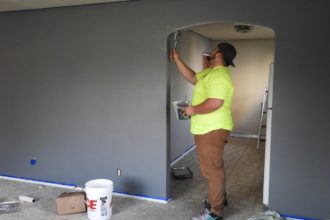5 Money Management Tips for COVID-Stricken Households

 By now, I think we all know that COVID-19 poses a serious health risk, but it’s not just the health of people around the world that’s suffering. Millions of people have lost jobs, been temporarily laid off and had their incomes cut to a fraction of the levels they once were. It’s not surprising then that debt levels among certain sections of society are rising.
By now, I think we all know that COVID-19 poses a serious health risk, but it’s not just the health of people around the world that’s suffering. Millions of people have lost jobs, been temporarily laid off and had their incomes cut to a fraction of the levels they once were. It’s not surprising then that debt levels among certain sections of society are rising.
Wonga recently published a debt management guide to help people get out of debt. We think it’s time to update this with some tips aimed specifically at those who are struggling to cope with the financial implications of COVID-19.
Table of Contents
1. Draw up an emergency budget
Everything has changed. We’re currently living in a ‘new normal’, so your old budget just won’t do. You need to draw up an emergency budget that takes into account your reduced level of income and also, what’s likely to be reduced expenditure. This will help you get through the next few weeks and identify costs that you might be able to cut back on.
This guide to drawing up an emergency budget will help.
2. Check all of your insurance policies
This hopefully short-lived period of financial hardship could be avoided altogether if you have insurance policies that cover your mortgage payments or income during this time. Policies that may provide essential cover include:
- Payment protection insurance
- Accident, sickness and unemployment insurance
- Mortgage payment protection insurance
These policies are often tied in with other products such as life insurance, so it’s all too easy to forget you have cover.
3. Talk to your creditors
If you think you’re going to struggle to make a payment to a landlord, utility provider, bank or anyone else you owe money to, always call them to explain the situation before you miss a payment. These are extraordinary times for everyone, and you might be surprised just how flexible your creditors are willing to be. Once a payment has been missed, late payment penalties and interest charges can be applied, which will make the situation worse. The creditor will also be less open to negotiations in the future.
4. Use your savings
Have you been putting money aside for a rainy day? Now, for many people, it’s pouring. As painful it might be to dip into savings that have taken so much time to build, this is exactly what they’re for. Even if your savings are in a fixed-term or notice account, many banks and building societies are allowing people to access their money early with no penalties. Check with your bank or building society to see if you can do the same.
5. Request a payment freeze
Many borrowers are asking their lenders to freeze the repayments on mortgages, personal loans, credit cards and store cards, and, if a payment freeze is granted, it will not affect your credit rating. However, you must make sure the payment freeze is agreed with your lender before you stop making payments, otherwise, it could be classed as a missed payment and lead to penalty charges. Equally, a payment freeze may not be suitable for everyone, and if you can afford to continue making your debt repayments, you should continue to do so.
Have your finances been affected by COVID-19? What measures are you taking to manage your money? Please share your thoughts in the comments below.

